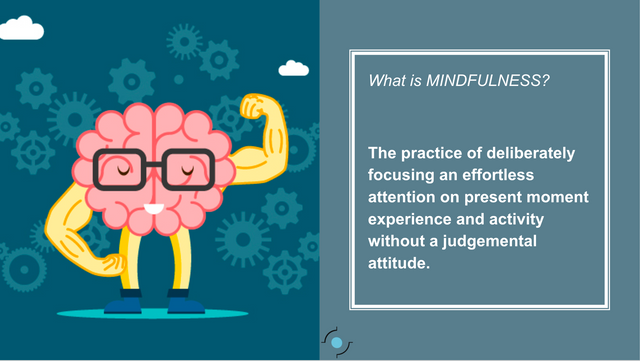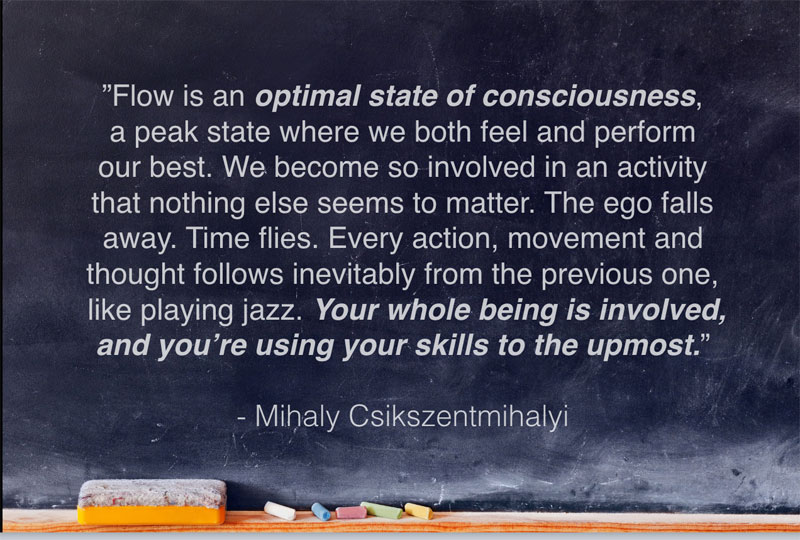What is Mindfulness, and how does it contribute to consistent peak performance?
Mindfulness is the practice of deliberately focusing an effortless attention on our present moment experience without a judgemental attitude. It is an attentional training where our mind and senses are full of what we are experiencing, engaged in the here and now, continually refocusing our attention on the present moment. We can practice it formally in a seated meditation and informally during our daily activity in any situation. For example, we can practice it while eating, walking, doing the dishes, or playing our sport. No one can even tell when you're doing it. We can do it anytime in activity by paying attention to our senses, body sensations, or our breath.
Meditation and mindfulness are interconnected, and we train our focus and attention for 10 - 20 minutes a day in a seated meditation to improve our natural mindful state. Meditation also facilitates the ability to practice mindfulness during our daily activity which also contributes to improving our natural mindful disposition.
How does mindfulness contribute to peak performance?
Mindfulness contributes to peak performance and experience by improving the mental skills related to present moment attentional and emotional self-regulation (Gardner, and Moore, 2006). The development of mindfulness skills allows the performer to focus on what they need to (Gardner, and Moore, 2007), derailing ruminative thought that can distract them from present moment task demands (Teasdale et al., 1995 cited Gardner, and Moore, 2007). The increased present moment attention and awareness of the external performance environment allows the performer to become more sensitive to cues and alternative opportunities contributing to adaptive and responsive behavior rather than automatically reacting to emotional states when things don't go as expected (Gardner, and Moore, 2007).
The practice of mindfulness, including the practice of mindful meditation has been shown to promote cognitive flexibility (Moore, and Malinowski, 2009). Cognitive flexibility is directly linked to attentional processes and is understood as the human ability to adapt new thought strategies according to unexpected changes in the environment (Canas, et al., 2003). With an attitude of acceptance and nonjudgment, a mindful state increases awareness of automatic reactivity and reduces the effort required to exert control over internal experiences of thoughts, emotions and physiological sensations that can lead to problematic action in the sporting environment. Practicing acknowledging, accepting and altering the path of problematic thoughts, emotions, and physiological sensations, kindly returning to effortless present moment attention, contributes to greater situational and behavioral flexibility (Gardner, and Moore, 2007), which is key to consistently performing at a high level.
That's not all, Mindfulness and the psychological state of being known as flow have a common denominator which I will discuss my next post. In the meantime, feel free to ask any questions.
References
Canas, J., Quesada, J., Antolí, A. and Fajardo, I., 2003. Cognitive flexibility and adaptability to environmental changes in dynamic complex problem-solving tasks. Ergonomics, 46(5), pp.482-501.
Gardner, F. and Moore, Z., 2006. Clinical sport psychology. Human kinetics.
Gardner, F.L. and Moore, Z.E., 2007. The psychology of enhancing human performance: The mindfulness-acceptance-commitment (MAC) approach. Springer Publishing Company.
Moore, A. and Malinowski, P., 2009. Meditation, mindfulness and cognitive flexibility. Consciousness and cognition, 18(1), pp.176-186.


Getting in the zone! Great post. :)
Absolutely, AIM Mindfulness and Let it Flow :)